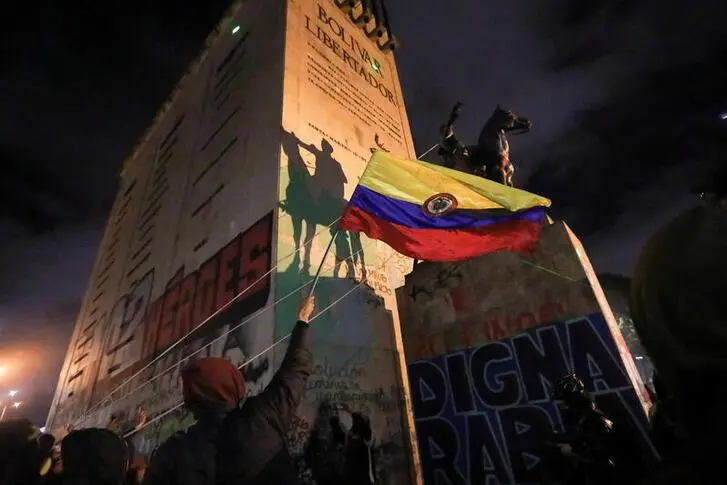PHOTO
The Colombian peso advanced to its highest level in nearly a month on Friday ahead of the presidential election on Sunday which leftist Gustavo Petro is expected to win, while Latin American currencies headed for their second week of gains.
"It's done a round trip in May. But, relative to where oil prices are today, the Colombian peso is very weak for a pretty oil-heavy currency. It has also underperformed most of its Latin American peers," said Edward Al Hussainy, senior interest rate and currency analyst at Columbia Threadneedle. "That gap tells you that there's a lot of political risk baked into that currency."
The peso rose 0.4% against the dollar. Gustavo Petro, the leftist contender, has consistently led opinion polls for the presidential vote against a center-right candidate seen as the natural successor to the incumbent leader and an eccentric business magnate.
Colombian corporates remain well positioned to face the challenging political and operating environment engulfed in political uncertainty, according to a new Fitch Ratings report.
The MSCI's index for Latin American currencies extended its gains for a second straight week, while stocks rose 0.5%.
In Brazil, a new survey by pollster Datafolha showed former President Luiz Inacio Lula da Silva has increased his polling lead over incumbent Jair Bolsonaro ahead of the October presidential election. The Brazilian real rose 0.3%, heading for a third straight week of gains. The Bovespa edged lower as a 3% drop in Petrobras weighed on Brazil's commodity-heavy index.
Miner Vale SA gained 1.4%, tracking the recovery in iron ore prices, as traders shifted focus to possible additional stimulus measures from China to meet its growth target.
The Chilean peso rose 0.4%, tracking firm copper prices on hopes for a recovery in top metals consumer China. Mexico's peso rose 0.8%, helped by a weakness in the dollar, after minutes from the Federal Reserve's May meeting earlier this week calmed fears that the U.S. central bank could become more aggressive.
Elsewhere, Russia is on the cusp of a unique kind of debt crisis which investors say would be a first time a major emerging market economy is pushed into a bond default by geopolitics, rather than empty coffers. The rouble extended its losses after plunging the previous session as the central bank slashed interest rates, and the prospect of easing capital controls and a possible sovereign default hammered the currency.
(Reporting by Bansari Mayur Kamdar in Bengaluru; Editing by Nick Macfie)





















